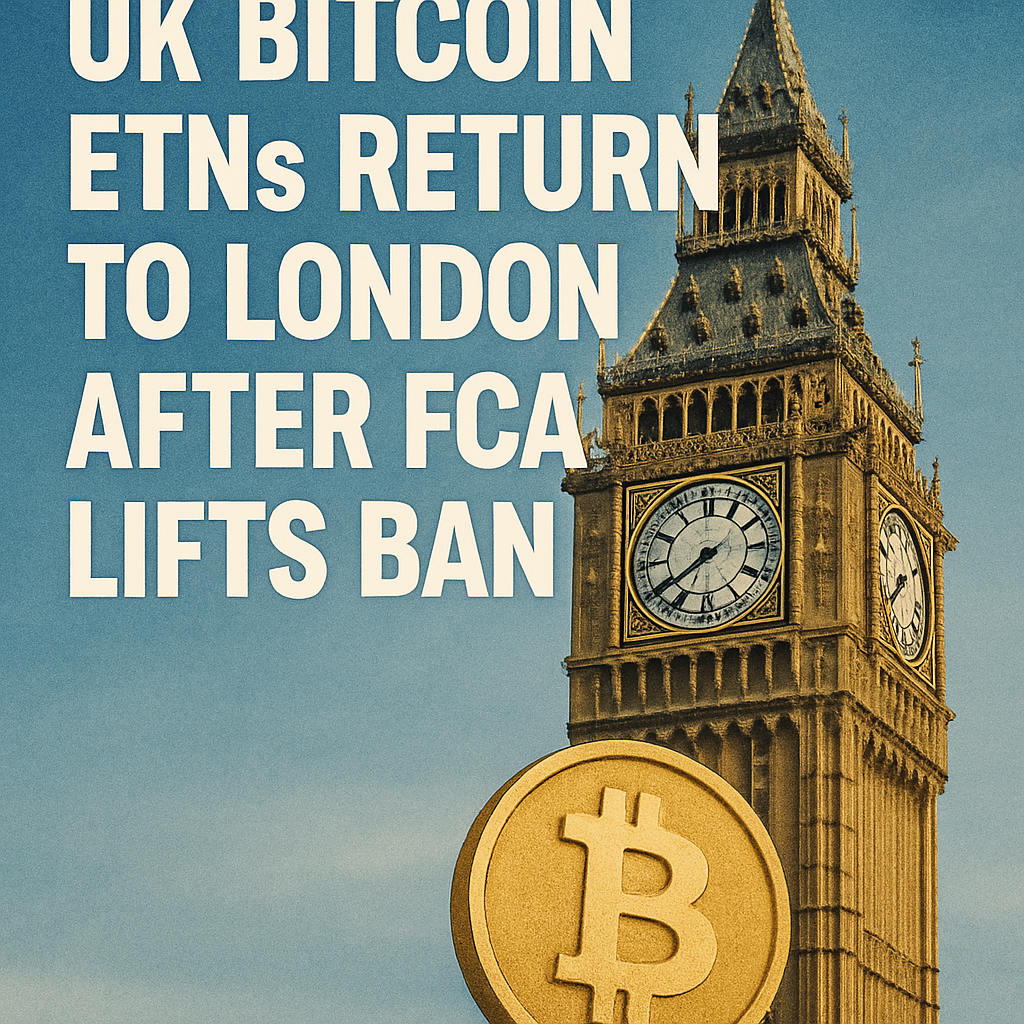Introduction
After four years in effect, the ban on retail bitcoin exchange traded notes was lifted by the Financial Conduct Authority on August 20, 2025. Retail access to bitcoin ETNs will resume on October 8 under strict promotion rules and exchange approvals. This decision followed concerns over extreme volatility, fraud susceptibility and valuation challenges that underpinned the original prohibition in January 2021.
Regulatory Context
The FCA initially banned crypto ETNs in 2021 after risk assessments highlighted significant investor protection issues. The reversal aligns with broader global trends as the United States recorded over $65 billion of net inflows into spot bitcoin and ether exchange traded funds since January 2024. European funds under UCITS gained regulated exposure through alternative vehicles, leaving UK investors reliant on offshore products and proxy instruments such as Strategy shares. Analysts at SoSoValue documented that euro-denominated ETPs attracted inflows exceeding $10 billion during the first half of 2025, underlining investor appetite for regulated crypto exposure.
Market Implications
Industry participants anticipate that the return of bitcoin ETNs will reshape the UK asset management landscape. ByteTree founder Charlie Morris projected that London could attract significant fund flows given its status as the second-largest global financial center. Institutional platforms may integrate ETN products within standard allocation frameworks, while independent financial advisers will reassess suitability processes under the updated regulatory guidance published by the FCA. Market data from SoSoValue indicates that demand for regulated crypto products rose 120% year-over-year in the EU, suggesting potential for comparable UK inflows upon launch.
Strategic Outlook
Advisory firms face a timeline of several months to update due diligence procedures, risk assessment models and client communications. Product issuers will need to secure FCA approval, demonstrate robust valuation methodologies and comply with new promotional standards. Observers note that sustained demand may depend on integration with existing liquidity pools on major exchanges and the clarity of tax treatment for ETN holdings. The FCA indicated that ongoing reviews of MiCA and other frameworks could inform future adjustments to crypto product regulation.
Conclusion
The lifting of the ban on retail bitcoin ETNs marks a critical juncture for UK crypto markets, potentially driving substantial capital inflows and solidifying London’s role as a global hub for regulated digital asset products. Market participants are now focused on operational readiness for the October 8 launch date and the evolution of investor engagement in response to the expanded product set.
.
Comments (0)